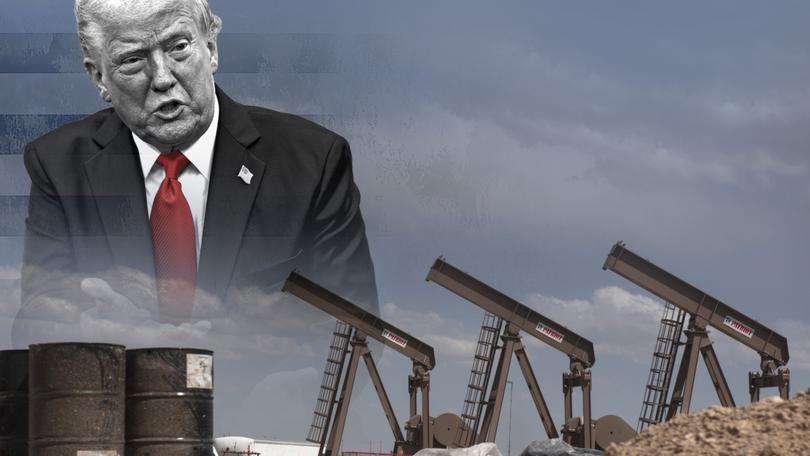THE ECONOMIST: ‘If I’m not president, you’re f…ed’ Oil firms frack around & find out under Donald Trump slump
THE ECONOMIST: Trump positioned himself as the American oil industry’s only hope, but now many US producers cannot turn a profit as they take hits from the trade war.

“If I’m not president, you’re f…ed.” So Donald Trump reportedly told a roomful of oil bosses gathered at Mar-a-Lago after his re-election. During the campaign Mr Trump sought to position himself as the American oil industry’s only hope against the supposedly hydrocarbon-hating Democrats — brushing aside the fact that domestic oil production rose sharply during Joe Biden’s time in office. Since his arrival in the White House, he has set about rolling back environmental regulations and expedited permitting in an effort to get America’s oilmen to “drill, baby, drill”.
With his trade war, however, the president has also trampled on global demand for hydrocarbons. Since he returned to the Oval Office, the benchmark West Texas Intermediate oil price has fallen from $US80 a barrel to $US60 ($93). That is a problem for the country’s shale patch, which accounts for around two-thirds of domestic output — and for smaller producers in particular, who have been among the president’s most enthusiastic backers.
Today’s price is troublingly low for America’s shale drillers. Matthew Bernstein of Rystad, a consultancy, calculates that, on average, they need an oil price of around $US63 a barrel to cover their production costs, overheads, debt interest and dividends. On May 5 Diamondback Energy, one big shale firm, said that it was slashing its production target for the year and cutting capital spending by $US400m. Others including Coterra Energy, EOG Resources and Matador have also announced plans to reduce drilling. “We are at a tipping-point for US oil production,” says Travis Stice, Diamondback’s boss. “If these prices persist for a year, US oil production will decline,” warns Ben Dell of Kimmeridge, a private-equity firm focused on energy.
Sign up to The Nightly's newsletters.
Get the first look at the digital newspaper, curated daily stories and breaking headlines delivered to your inbox.
By continuing you agree to our Terms and Privacy Policy.In addition to weighing on prices, Mr Trump’s tariffs are also raising costs for oil businesses. Tariffs on steel products such as drilling pipes, casings and tanks are of particular concern for the industry.
All this is especially worrying for smaller producers. Thanks to a recent wave of consolidation, oil giants such as BP, Chevron and ExxonMobil account for roughly 60 per cent of American shale output, notes Scott Gruber of Citigroup, a bank. Smaller independent firms tend to have less productive wells and higher costs. Unlike the giants, they lack the bargaining power to force suppliers to absorb the impact of tariffs. Capital to help weather the storm tends to be harder to access, and costlier, and the smaller firms are typically not diversified beyond American shale. So far at least, BP, Chevron and Exxon have announced no plans to cut production.
Nonetheless, little oil remains far more full-throated than big oil in its support for Mr Trump. The giants are not enthused by the president’s proposal to axe his predecessor’s subsidies for carbon-capture and hydrogen technologies, which they have been investing in. Exxon recently said it would spend up to $US30b by 2030 on such low-carbon endeavours.
That contrasts with the enthusiasm for Mr Trump among smaller oil firms. Their godfather is Harold Hamm, a shale billionaire from Oklahoma who backed the president’s campaign and persuaded Mr Trump to name Christopher Wright, his protégé and a fellow shale driller, as America’s secretary of energy.
Mr Hamm recently convened a secretive meeting of oilmen in Tulsa, supposedly to promote the use of natural gas to power data centres for artificial intelligence. Insiders say that plans were hatched to tilt the federal regulatory playing field to advantage fossil fuels over renewables. Four members of Mr Trump’s cabinet were reportedly present at the gathering. Despite the pain brought on by his trade war, little oil still has big hopes for Mr Trump’s presidency.
Originally published as Donald Trump is throttling America’s oil industry
